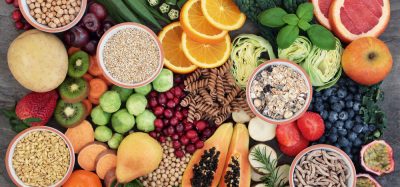Report reveals motivations behind food and beverage sustainability trends
Posted: 23 January 2020 | Sam Mehmet (New Food) | No comments yet
The report aims to clarify the connection between the evidence-based claims for sustainability’s urgency and the general trend toward sustainability in the food and beverage industry.


Tastewise, a data-insights research platform, has reportedly revealed the motivations, values and preferences underpinning sustainability trends in the food and beverage industry. The latest report, Food and Beverage Sustainability Trends in 2020, is said to anticipate industry changes in sustainability for the upcoming year.
“With consumer-specific insights, brands can strategise how best to participate in – and capitalise on – this important moment in the industry,” Tastewise wrote in a statement.
Key takings from the report include:
Almost a quarter of consumers currently make food and beverage choices based on sustainability
23 percent more American consumers make food and beverage decisions based on sustainability considerations than a year ago. Tastewise expects this number to grow significantly in the coming months.
“Consumers care about the environment – but more about themselves”
‘Health’ is a dominating motivator for sustainable choices among consumers, but consumers are more likely to choose a sustainable option because its perceived health benefits over its environmental benefit. Despite the well-documented environmental damages of the animal agriculture industry, consumers are relatively apathetic to the planetary harm caused by the industry’s waste – currently, only 10 percent of consumer conversations about waste focuses on meat.
Packaging’s impact extends beyond just the environment
Sustainably-minded packaging options – from to-go cups to take-away boxes and more – give restaurants a significant popularity advantage amongst consumers on social media. Food and beverage establishments that advertise their use of these products see a marked increase in consumer interest.
Sustainably produced ingredients will dominate tables and shelves
Mainstream consumers are beginning to pay attention to not only the environmental consequence of a product after an item has been consumed (ie. wasteful plastic packaging), but also the environmental consequences of its production. Ingredients with sustainable and ethical supply chains will become more popular as consumers take a greater interest in products’ full lifecycles.
Veganism is the most common diet for sustainable eating
The leading motivations for going vegan are health (31 percent), fitness (12 percent), weight loss (four percent), sustainability (two percent) and animal rights (two percent). Among the reasons for ‘sustainable eating’, veganism is the most common diet. However, 73 percent of people stick with what they know, turning to ‘sustainable meat’ options like grass-fed beef.
‘On the go’ items are trending in the sustainability space
‘On the go’ food and beverage are rising by 31 percent in the sustainability category. These include products that are considered convenient, portable and sustainable. ‘Sustainable coffee’, which focuses on organic, responsibly sourced beans, recycled capsules and fresh brews, saw a 8.5 percent year-on-year growth in social discussions from home, and a 12 percent increase in restaurants.
Sustainable juice and smoothies, which acknowledge consumer interest in sustainable packaging and straws for example, saw a 38 percent year-on-year growth in social media exposure.
More findings can be found in the full report.








